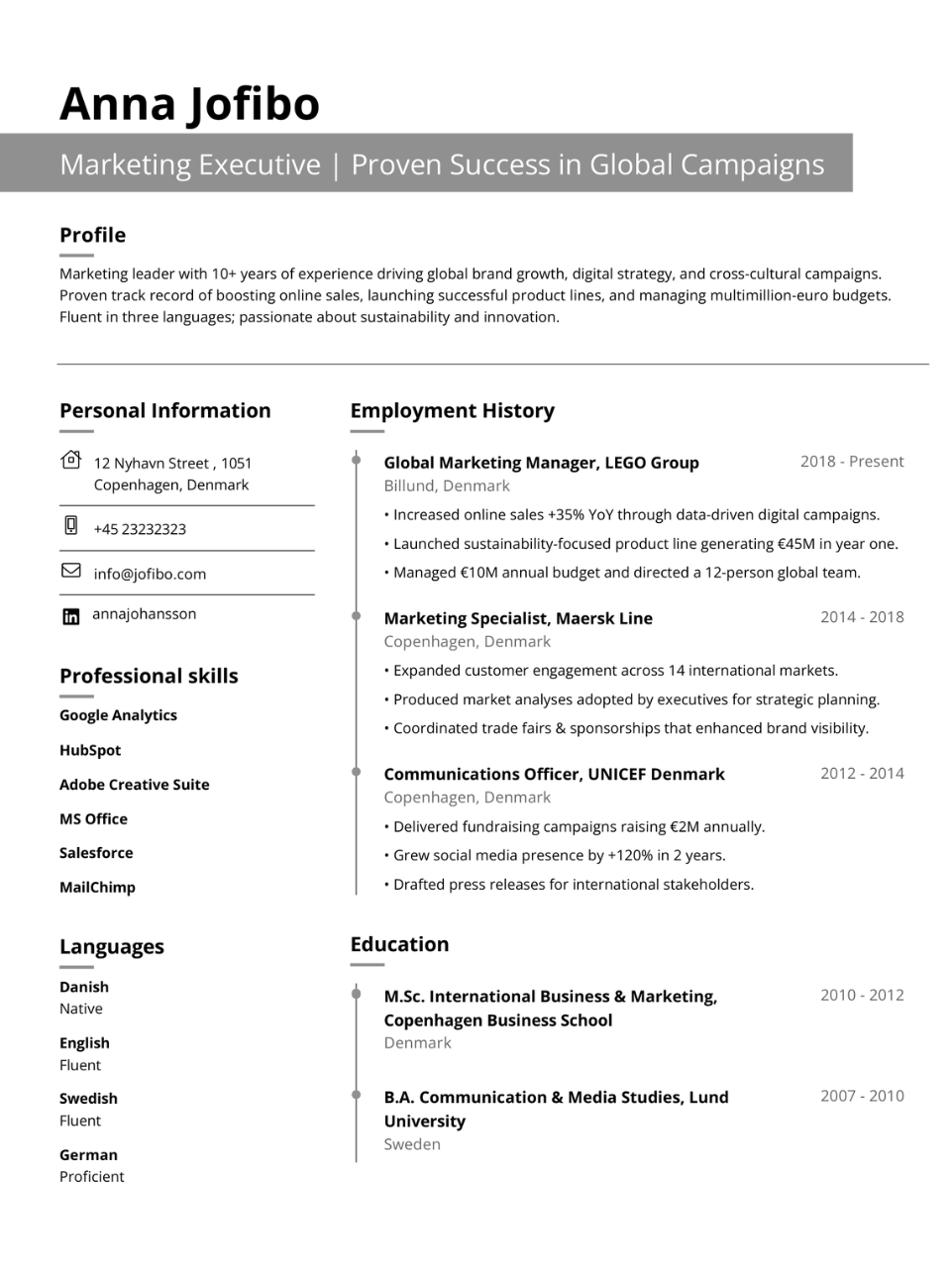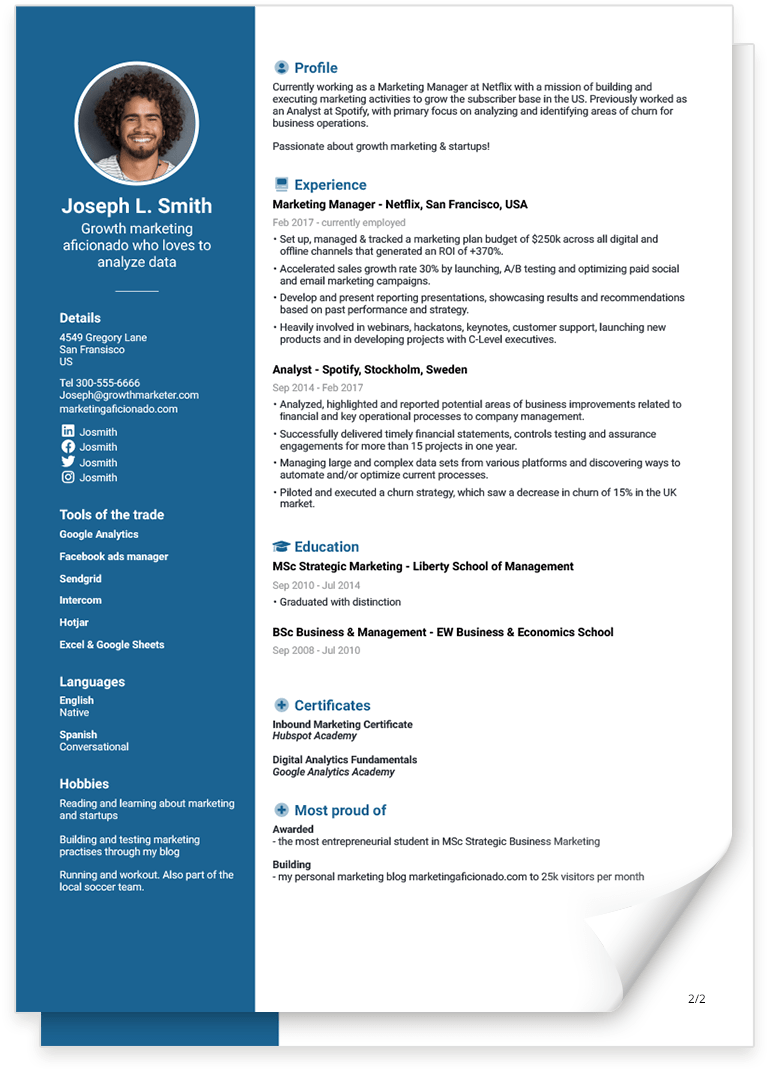CV vs. Resume: Key Differences and When to Use Each

Have you ever wondered why some job candidates talk about their CV while others talk about their resume?
The terms CV and resume are often used interchangeably, yet they refer to two distinct documents with different purposes, lengths, and expectations—depending heavily on geography and profession.
In this guide, you’ll learn:
- What a CV is vs. a resume
- The structural and functional differences between the two
- When to use a CV and when a resume is the correct choice
If you want to avoid using the wrong document (and accidentally disqualifying yourself), this distinction matters.
What is a CV?
Let’s start with clear definitions—because most confusion starts here. Let’s start with the definition of a CV.
CV stands for curriculum vitae, Latin for course of life. In its original and strictest sense, a CV is a comprehensive, credential-based document that provides a full overview of your academic and professional background.
A traditional CV is:
- Detailed and exhaustive
- Focused on academic and research achievements
- Not limited in length
A CV is commonly 2–3 pages, but for senior researchers, professors, or medical professionals, it can extend well beyond 10 pages. There is no formal length restriction because the purpose is documentation—not persuasion.
What to include in your CV
A CV typically includes many (or all) of the following sections:
- Contact information
- Research objective, professional profile, or personal statement
- Education
- Academic and professional appointments
- Books
- Book chapters
- Peer-reviewed publications
- Other publications
- Awards and honors
- Grants and fellowships
- Conferences and presentations
- Teaching experience
- Research or lab experience
- Graduate fieldwork
- Non-academic activities
- Languages and technical skills
- Professional memberships
- References
This level of detail is expected—and often required—when applying for academic roles, research funding, or fellowships.
What Is a Resume?
A resume is a concise, role-focused document designed to communicate one thing clearly: Why you are a strong match for this specific job.
A resume is:
- Brief and selective
- Competency-based rather than credential-based
- Tailored to the job posting
The optimal length of a resume is 1–2 pages, with one page being the norm for early- and mid-career professionals.
Unlike a CV, a resume is not a full history. It’s a strategic summary. Because most employers use Applicant Tracking Systems (ATS) to screen applications, a resume must also be structured so it can be correctly parsed and ranked by software—not just read by humans.
Learn how to make sure your resume is ATS-friendly
What to include in a resume
Below is a list of sections to include in a resume.
- Contact information
- Resume profile or summary
- Employment history
- Education
- Skills
- Optional additional sections (e.g. certifications, courses, awards, publications, conferences)
Every section should earn its place. If it doesn’t support your candidacy for the role, it doesn’t belong. To see what it looks like in practice, check out the resume example below.

The Core Differences Between a CV and a Resume
Although both documents are used in job search contexts, their differences are significant and intentional.
First and foremost the differences consist of length, content, and purpose.
Below we have gathered a list of the differences between a CV and a resume to give you a quick overview:
CV
- Usually 2–3 pages, with no maximum length
- Credential-based and academically focused
- Used primarily for academic, research, and medical roles
- Provides a complete record of achievements and experience
Resume
- Usually a resume is one page, sometimes two
- Competency-based, focused on results and skills
- Used for most non-academic job applications
- Tailored specifically to each job posting
The distinction is not about preference—it’s about expectations.
When to Use a CV vs. a Resume
Now here’s the real question. When should I use a CV and when should I use a resume? And this is where geography becomes critical.
In the US and Canada, a CV is used only for academic purposes:
- Academic positions
- Medical jobs
- Grants applications
- Research fellowships
And a resume is used for all other job purposes.
Submitting a CV for a standard corporate role in the US or Canada will often signal that you don’t understand local hiring norms.
However, outside North America, the terminology shifts. In most European, African, and Asian countries, employers typically ask for a CV—but what they mean is a document that looks and functions like a North American resume.
In these regions:
- A CV is usually short, targeted, and skills-focused
- It is competency-based, not academically exhaustive
- Structurally, it mirrors what the US and Canada call a resume
In other words, the name changes—but the document does not.
A CV in Germany, Denmark, the UK, India, or South Africa is often equivalent to a US resume. Meaning it’s competency based and not credential based.
CV. vs. resume key takeaways
If you remember nothing else, remember this:
- In the US and Canada, a CV is for academic and research purposes and can be very detailed
- In the US and Canada, a resume is used for job applications and should be concise and tailored
- In most other parts of the world, a CV functions like a US resume
- The right document isn’t about what you prefer—it’s about what employers expect.
Are you ready to create your own resume or CV?
Already have a resume? Import it and turn it into an ATS-friendly version in minutes.



![Server Resume Examples [Guide & Tips]](https://jofibostorage.blob.core.windows.net/blog/server-resume-examples-header.png)
